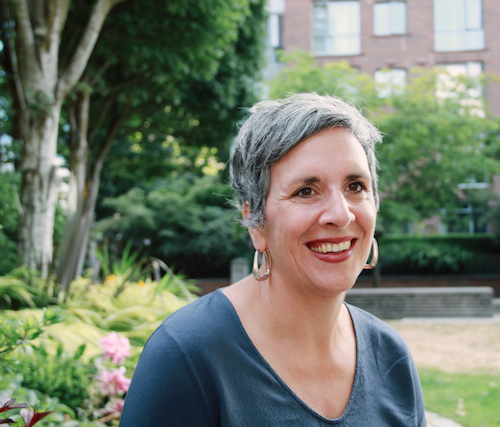From our Executive Director
This past year, Pain BC has focused on helping people understand the role of untreated pain in the overdose crisis. A recent BC Coroner’s report indicates 56% of people who died of overdose sought care for physical pain in the year prior to overdosing. In November, we held a dialogue with key stakeholders from the health care, research, and substance use communities to explore the effects of untreated pain in the overdose crisis and to determine what we can do to address pain and save lives.
We’ve continued working with the nearly 100 stakeholders we partnered with following our 2017 Provincial Pain Summit. Collectively, we’ve been advancing strategic priorities, including our goal of a provincial strategy for chronic pain.
We’ve also focused on the development of key programs to support and empower people in pain and to provide education end engagement opportunities for health care professionals and researchers.
In February 2018, we launched Coaching for Health, a phone-based lay-coaching program which pairs people in pain with health coaches who support them in making meaningful changes in their lives. Since its inception, this program has successfully paired coaches to 70 people living with chronic pain.
Our education team has been busy with the development of Pain Foundations, an online course designed to address the challenges faced by health care providers when assessing and treating pain. Pain Foundations will be available to providers across the globe starting January 2019.
We’ve worked closely with the University of British Columbia to develop the BC Pain Research Network. The Network has brought together more than 100 researchers from BC to collaborate on pain research and bring new knowledge into practice and policy.
While these projects are different in scope, our process for developing them has common elements: partnerships with key stakeholders, shared goals, prototyping ideas, evaluating them, and if they have a meaningful impact, spreading them.
In 2019, Pain BC will build on this work and respond to emerging needs. Examples include the Acute Pain Advisor Pilot project with the Sea to Sky Division of Family Practice, through which we’ll help people with acute injuries identify the early warning signs of chronic pain and connect them with key resources. If the model is successful, we’ll look to spread it next year to ensure more people get the support they need to prevent pain from becoming chronic.
We’re also tailoring programs – or designing new ones – to meet the needs of marginalized populations. A recent grant from the Michael Smith Foundation for Health Research has allowed us to hold focus groups with Indigenous, immigrant and refugee, and LGBTQ2S communities to gain an understanding of pain from a diverse range of perspectives. We’ll be able to apply this learning in our programming next year.
Our first Low Barrier Self-Management Pilot Program, currently underway in the Downtown Eastside of Vancouver, will teach us about how to support self-management for people living in marginalized conditions. In 2019, we hope to collaborate with Indigenous health organizations to build a version of this program that is culturally safe and relevant for Indigenous communities throughout BC.
Additionally, we'll be launching Project ECHO in 2019. Based on an established model of health care provider mentorship and support, it will bring together an interdisciplinary group of specialists who will meet monthly by videoconference to review patient cases and engage in pain management training with rural and remote teams across the province. Through this collaboration, we hope to improve the care people living with pain get in their local communities.
2018 has held a number of important accomplishments for Pain BC but there’s still much more to do. I’d like to thank you for your continued support. Whether you’re a person living with pain, a family member, a health care professional, a researcher, a policy maker or someone who cares about relieving pain – please remember that none of our work would be possible without you.
Wishing you a warm holiday season and a happy new year!
